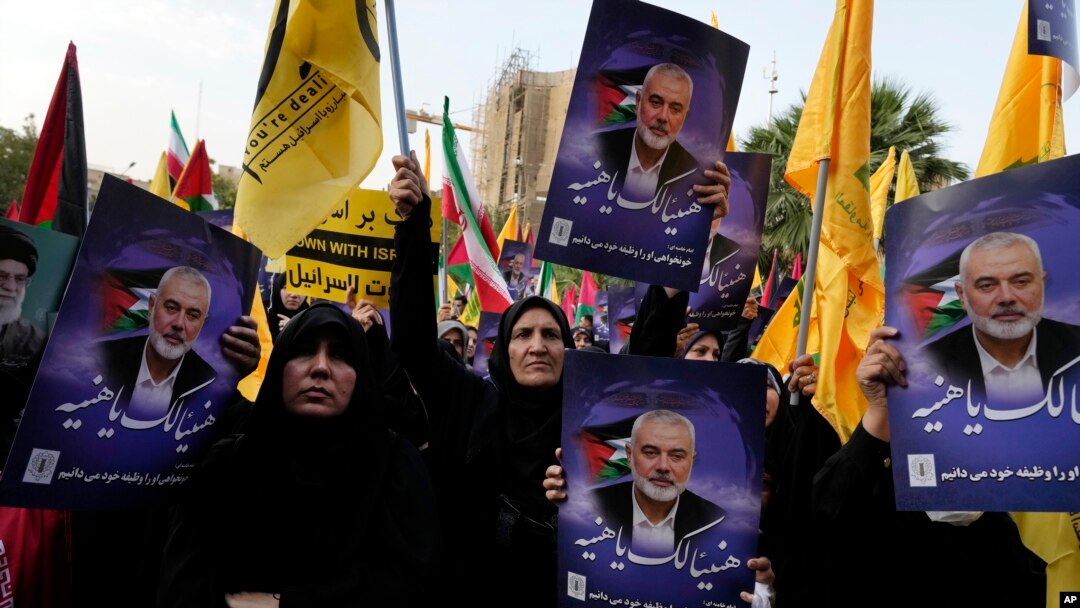Iranian Supreme Leader Ayatollah Ali Khamenei vowed "harsh punishment" and revenge against Israel over the assassination Wednesday of Hamas chief Ismail Haniyeh, who was in Tehran for the inauguration of the Islamic Republic’s new president.
Although Israel has not commented on the killing, the fact that the assassination took place in the “heart of Tehran” during “a high-profile visit” sends a clear signal from Israel to Iran to “de-escalate,” analyst Nicholas Heras of Washington’s New Lines Institute told VOA.
“The Israelis have yet to claim credit, but it’s likely the Israelis,” he said. “The Israelis can strike Iran or its allies anywhere, at any time.”
Haniyeh’s assassination, paired with Tuesday’s killing of Fuad Shukr, a senior Hezbollah leader, in Beirut, Lebanon, shows that “the Israelis are sending a signal that Israel has superior intelligence, surveillance, reconnaissance and operational capabilities” and that “the Israelis have an upper hand,” Heras said.
SEE ALSO: Hamas, Hezbollah face dilemmas in hitting back at Israel after assassinations of key leadersAhron Bregman, Middle East security professor at King’s College London, told VOA that although it’s hard to tell what Iran might do, the Islamic Republic “would prefer not to attack Israel directly.”
“Iran’s number one priority is to have an atomic bomb under its belt. It’s not the best time for it. Therefore, it would prefer to work through proxies,” Bregman said. “But it was challenged by Israel and humiliated by Israel when Israel assassinated someone on its soil.”
Watch related report by Linda Gradstein:
Your browser doesn’t support HTML5
Iran threatens retaliation against Israel for assassination of Hamas leader Haniyeh
Effects on cease-fire negotiations
Meanwhile, Qatar, which has been active in cease-fire and hostage negotiations over the Gaza war, "condemned in the strongest terms" Haniyeh’s assassination.
The tiny Middle East nation also called the killing “a dangerous escalation and a blatant violation" of international and humanitarian law.
"This assassination and the reckless Israeli behavior in continuing to target civilians in Gaza would lead to the region sliding into chaos and undermine chances for peace," the Qatar Foreign Ministry said.
Bregman said the negotiations “are not going to go anywhere now.” Neither Israeli Prime Minister Benjamin Netanyahu nor Hamas’ leader in Gaza, Yahya Sinwar, want to discuss a truce, he said.
“Netanyahu is not interested in a hostage deal for political reasons because his coalition partners are not interested,” Bregman said. “Sinwar might get want what he always wanted: a regional war.”
Analyst Heras said Haniyeh’s assassination is “a blow to U.S. Arab partners Qatar and Egypt’s” negotiation efforts to win a cease-fire and hostage release.
“Egypt and Qatar have been in the trenches with the United States to try to get this hostage deal between Israel and Hamas moving,” he said.
U.S. Secretary of State Antony Blinken has repeated said that a cease-fire deal in Gaza is key to avoiding wider regional escalation.


